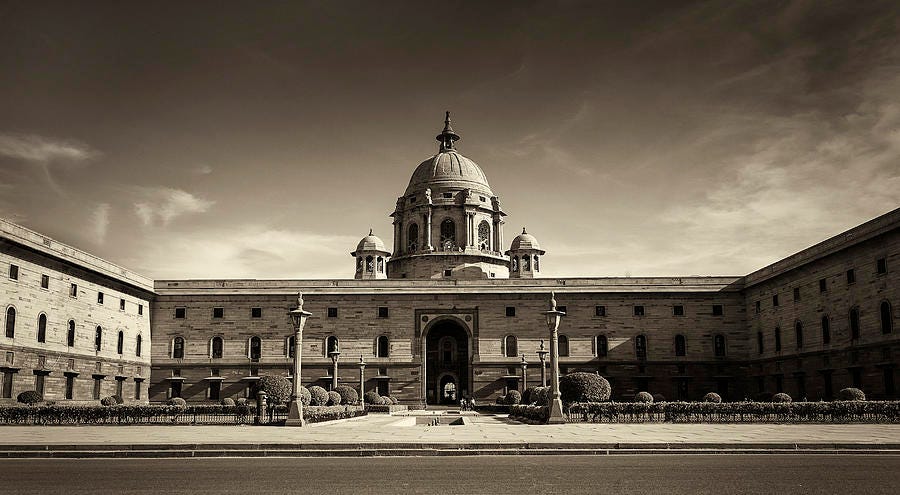India’s former Prime Minister, Atal Bihari Vajpayee, once said, “You can change friends but not neighbors.” However, New Delhi’s efforts are not sprouting the desired conditions—India aspires to guide the South Asian region for a more considerable say in international politics. China is living this dream, and it has a strong influence in South Asia. China’s economic support and technology transfer are significant steps for better relations with South Asian countries, such as ties with the island nation with a geostrategic position in the Indian Ocean. Its presence in South Asia is becoming dominant with the China-Pakistan Economic Corridor, diplomatic recognition to the Taliban government, and the deteriorating relations between India and Pakistan continue to deteriorate.
The current trends of Indo-Pak
The genesis of India and Pakistan as nations is followed by conflicts—Three wars were fought between them. In the modern world, Indo-Pak rivalry is well-known in International politics. However, the current trend of total vacuum between the two nuclear states is worrying for India’s national security. Since the former Prime Minister of Pakistan, Imran Khan, lost the no-confidence vote, forcing his removal from power in 2022, the Pakistani army was actively involved in Khan’s removal. A backlash from Khan’s party has created a “political conflict of interest” with the Pakistani establishment. India utilized this window and targeted terrorists, who were a threat to its national security. The new Shehbaz Sharif government, shadowing Imran’s party, PTI, from Pakistan's political spectrum, settled the political chaos, created a favorable environment, and the Pakistani Army brought back its attention to the hawkish policy toward India. In the past three years, Jammu and Kashmir has witnessed the killing of 119 security forces personnel, and over 40% of these killings were reported from the Jammu division. Pakistan conveys that we still hold a stake in Jammu & Kashmir. To be precise, one reason for this is India’s abolition of Article 370, which completely eroded the leftover symbolic autonomy of Jammu & Kashmir. The second reason is India’s total isolation of Pakistan. A perception is created in Delhi’s mind that “Pakistan has nothing to offer us– an economically collapsing nation.”
The role of Afghanistan
The Taliban returned to power in Afghanistan in 2021. New Delhi’s approach before 2021 was the same as the West; however, India does not send troops to Afghanistan. India’s relationship with Afghanistan got less weight compared to China-Afghanistan ties, as China accorded diplomatic recognition to the Taliban government. China’s presence in South Asia is dominant with the China-Pakistan Economic Corridor, “a 62 billion dollar economic project as of 2020”—a revival of China’s ancient symbolic trade route– the Silk Road. The scale of the project could be higher if Afghanistan also entered it. But, Pakistan and Afghanistan relations are not cordial—Precisely with the militant action of Tehrik-i-Taliban Pakistan(TTP), an organization with identical ideological goals to the Afghan Taliban. China understands the importance of good relations between Pakistan and Afghanistan for its strategic economic goals—A window to West Asia and Central Asia. As observed in West Asia, China played a conciliator between Iran and Saudi Arabia to break a deal. Presumably, if China replicates the same between Afghanistan & Pakistan, then it will lead to a strategic defeat for India in South Asia. India, on the other hand, has officially not recognized the Taliban as the legitimate governing body since the group came to power and has maintained a cautious position, catering only to the humanitarian needs of the Afghans.
Maldives in the Indian Ocean
Ibrahim Mohamed Solih, known for its good relations with India, lost the 2023 Maldivian presidential election. However, Mohamed Muizzu's ‘India-Out’ campaign successfully helped him to take the Maldivian President's seat. Muizzu acted expeditiously and asked India to withdraw the unarmed Indian military personnel stationed in his country. One crucial variable in perceiving a nation’s alliance is the leaders themselves; Muizzu’s interest lies more with China. Maldives and China signed agreements that included tourism cooperation, disaster risk reduction, a blue economy, and a military agreement. China’s interest in Maldives is more strategic than economic—Maldives holds a geostrategic position in the Indian Ocean. The two essential sea lanes of communication are located at the northern & southern parts of the Island. These lanes are crucial for maritime trade between the Gulf of Aden and the Gulf of Hormuz in West Asia and the Strait of Malacca in Southeast Asia. India also understands the importance of the island nation. It doesn’t want to distance itself from Maldives as it did for Pakistan—The Indian government extended budget support of $50 million to the island nation. Muizzu's attendance at the swear-in ceremony of Narendra Modi’s third term as Prime Minister of India indicates satisfactory progress.
What awaits from India
India rallies on the rhetoric of multipolarity and assertive voice for the Global South in International Politics. However, not having cordial relations with its neighboring nations will be counterproductive. A convenient course for India is to revive the South Asian Association for Regional Cooperation(SAARC). The extensive elevation of New Delhi is due to Beijing's absence in SAARC. About Pakistan—peripheral matters: People-to-people connections, a window to the religious corridors, and humanitarian visas should be themes for sensible engagement. In the Shanghai Cooperation Organization(SCO) 2024, India’s External Minister, Subrahmanyam Jaishankar, reiterates the importance of Joint effort in creating new connectivity linkages to serve a rebalanced world; China holds a vital role in this endeavor. The sole influence of China in the South Asia region would be a strategic defeat for India. An attempt should be made in a different international theatre to create better relations with China. The Russia-India-China(RIC) grouping is not a weak match to ignore.


